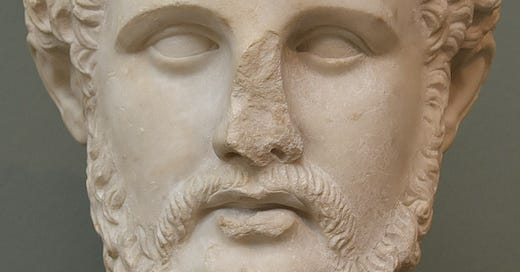Father to the Future: The Rise of Philip of Macedon
Before Alexander the Great, there was Philip II of Macedon. By Adrian Goldsworthy.
In May 334 BC Alexander III, the dashing, twenty-one-year-old king of Macedon, crossed the Dardanelles and attacked Persia, the great superpower of its day. Within eight years, he and his army were in what is now Pakistan, where the weary soldiers refused to push further into India. It was not the end of his conquests, and when he died at Babylon some three years later, he was about to lead a great expedition to the Arabian Gulf. The Romans subsequently dubbed him Alexander the Great, a name that has endured, as has his fame, for he is one of a handful of people from the Ancient World whose name prompts immediate recognition, if not necessarily much actual knowledge.
In sheer scale and speed, Alexander’s conquests were spectacular, but they were the culmination of an almost equally swift change in the fortunes of Macedon and the balance of power in the Greek world. Alexander became king in the summer of 336BC, proclaimed within hours of the assassination of his father, Philip II. No one was sure then or now whether Alexander had a part in the murder, but none doubted that he benefited the most from it, for it placed him at the head of a formidable war machine at the start of a great enterprise. For Philip had already devised the plan for the war against Persia, gathered the resources and sent an advance guard to Asia Minor. Had he not been murdered, he would have led the expedition, and we do not know whether or not he planned to take Alexander with him, or what sort of role he had in mind for the young prince.
Keep reading with a 7-day free trial
Subscribe to Aspects’s Substack to keep reading this post and get 7 days of free access to the full post archives.





